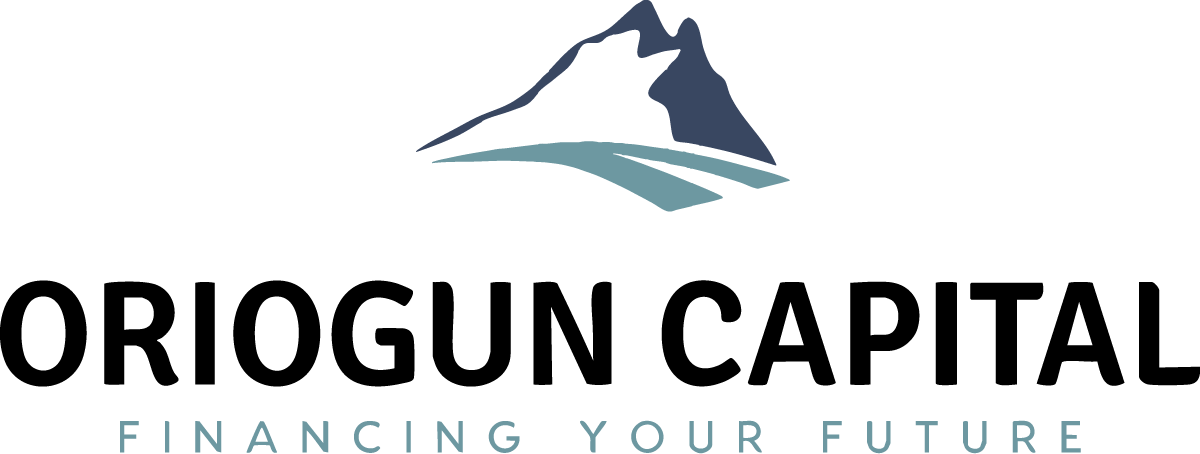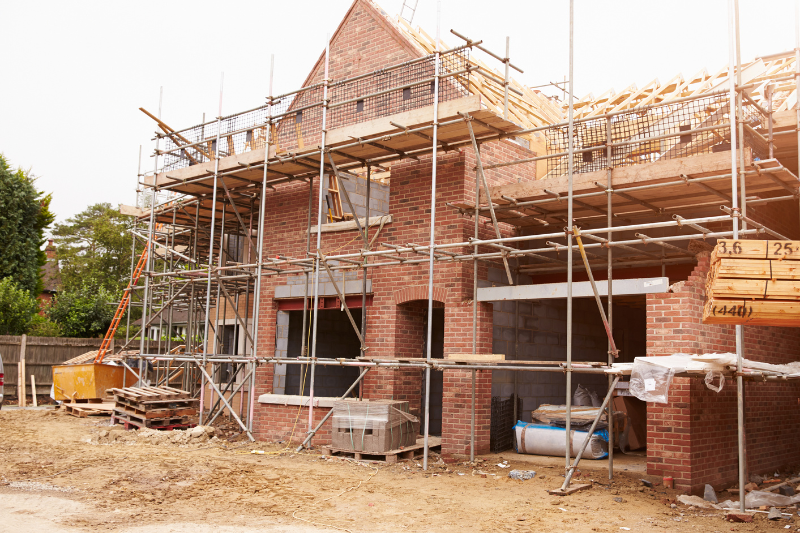So you're thinking about building a new property. Maybe you've always wanted to, or perhaps…
Why Choose Private Lenders for Construction Loans? Fast and Flexible Solutions
Securing the right financing is crucial for any construction project. While many automatically turn to banks for loans, they might not realize the possibilities that come with using private lenders for construction loans. These alternative lenders offer flexibility and benefits that can make a significant difference for your next big construction venture. But what are private construction loans, and when do they make sense for your goals?
Construction financing can be tricky, so let’s break down the key aspects of working with private construction lenders. We’ll explore the advantages, drawbacks, typical requirements, and situations where choosing this path over traditional bank financing can give you the edge. Whether you’re a seasoned investor or a new developer, understanding the role of private lenders in construction can equip you with valuable knowledge for your future endeavors.
What is a private lender for construction loans?
A private money lender is an alternative to traditional banks or credit unions for construction financing. They are individuals, groups, or companies with readily available funds specifically looking to finance real estate investments.
Private lenders are set apart by their flexibility and focus on speed, especially regarding construction. These lenders base their decision-making heavily on the merit and profitability of your project rather than just personal credit scores. It’s a more relationship-focused approach, where your experience, track record, and the project’s potential hold more weight.
How do private lenders for construction loans work?
Private construction loans typically work on a shorter-term basis than a typical mortgage. The loan is active during the construction phase. Then, it gets paid off through refinancing into a long-term loan or by selling the property.
Interest rates tend to be higher than conventional loans, reflecting the increased risk taken by the lender. However, this speed and flexibility can be essential when navigating the fast-paced construction environment. Hard money loans are one type of loan program they offer.
What types of private lenders for construction loans are there?
Private construction loans encompass a variety of forms, each tailored to a specific need within the real estate investment world. Some popular types include:
Hard Money Construction Loans:
This option often serves borrowers who might not meet the stringent criteria of traditional bank financing. It can include circumstances like lower credit scores, prior foreclosures, or seeking loans that wouldn’t typically qualify for standard underwriting practices.
Hard money lenders prioritize the value and profitability of the collateral (the property being constructed), focusing on recouping their investment through that should unforeseen issues arise. For investors seeking ground-up construction financing, these loans can provide the necessary capital.
Bridge Loans:
As their name suggests, bridge loans provide temporary financing to “bridge” a gap. They can be a good option for those who need to secure quick funds while awaiting long-term financing or are working through the sale of another property. They can help cover immediate needs like down payments or closing costs on your construction project.
Fix & Flip Loans:
These are popular among real estate investors aiming to buy properties, renovate them quickly, and sell for a profit. The speed of loan approval with a fix-and-flip arrangement means investors can act swiftly on time-sensitive real estate deals, getting a head start on renovations. These loans can also help investors fund the land acquisition phase of a project.
Benefits of Working With Private Lenders
Flexibility emerges as a significant advantage, especially when comparing private lenders to the stricter rules often associated with conventional bank loans.
Speed and Efficiency: The ability to receive faster approval and funding is one of the main draws of private lenders. They generally have more streamlined processes and quicker turnaround times compared to banks. This speed can be vital in a dynamic real estate market, especially for time-sensitive projects where securing financing promptly can make or break a deal.
Flexible Underwriting: Private lenders tend to have less stringent requirements compared to traditional banks. They’re often willing to work with borrowers who may have credit challenges or unique circumstances. Private lenders generally prioritize a borrower’s experience and the viability of the construction project when making lending decisions. Minimum credit score requirements may vary, and these lenders might be more understanding of situations that traditional lenders might shy away from.
Asset-Based Lending: The emphasis here is less on your financial history and more on the value of the asset (the property itself). It can be particularly helpful if you have strong collateral but might not fit the cookie-cutter mold that banks often use for loan applications. This approach can open up opportunities for borrowers who possess valuable assets but lack traditional credit histories or require non-standard loan structures. The lender is more concerned with the lien position on the property and its potential profitability. They offer a practical approach to securing money construction loans for investors.
Relationship-Driven Approach: Unlike larger institutions, many private lenders prioritize building personal relationships. This dynamic allows for better communication and often leads to more tailored financing solutions that align specifically with the unique needs of your construction project. It fosters a more personalized lending experience, which can be very valuable during potentially stressful project development periods. Building a solid rapport can often lead to more favorable terms and a smoother lending experience overall.
Drawbacks to Consider With Private Lenders
While the speed and flexibility offered by private lenders can be extremely advantageous, understanding the full scope means weighing those pros against potential downsides:
Higher Interest Rates: This is one of the more noticeable differences compared to bank loans. Since private lenders assume a greater level of risk by accommodating non-traditional borrowers, the trade-off often comes in the form of a higher interest rate than traditional financing options. This factor highlights the importance of having a well-structured project budget that accounts for these higher financing costs.
Shorter Loan Terms: Construction loans are generally considered “short-term,” but a private loan agreement might involve an even shorter term compared to bank loans. While this allows the private lender to recycle their capital for new investments more rapidly, you may need to refinance into a long-term financing option more quickly, especially for more extensive projects. It’s crucial to carefully evaluate this factor within the context of your project’s timeline to avoid potential refinancing challenges later on.
Larger Down Payment Requirements: Unlike some bank loans that offer financing with relatively low down payments, private lenders often require a more substantial upfront investment. Make sure to confirm down payment terms with several different private lending companies or individuals early in the process. This will help you to estimate financing costs appropriately when evaluating whether this type of construction financing is the best path for your needs. Understanding the required down payment is crucial for managing your cash reserves effectively.
Potential for Fees: Some private lenders charge additional fees, such as origination or closing costs. Carefully review these fees during your research to get a clear picture of the overall cost of borrowing. Ask lenders if they will waive fees to bring down costs to make a particular deal work. Factor these costs into your overall project budget. It’s best to always know where your numbers stand and to maintain complete financial transparency.
Typical Requirements Private Lenders Seek
Each lender operates with their own criteria. But certain common elements typically influence approval:
Experience and Track Record: A history of successful real estate development holds significant weight for these lenders. Be prepared to showcase prior projects with a well-organized portfolio. Clearly demonstrate your knowledge and the team you have in place to reassure them you can navigate challenges that arise throughout the construction project. Lenders prefer to minimize their risk and want confidence you’ll deliver on time. A strong track record, particularly in residential construction, can be a significant factor in securing favorable loan terms.
Detailed Construction Plan and Budget: Having this documentation demonstrates to the lender that your project is thoroughly planned and financially sound. Be meticulous and ensure numbers make sense and align with your goals for the finished property. Include material costs, subcontractor bids, permits, and a realistic project timeline. These details build trust and show the lender you have the expertise to get the job done.
Proof of Borrower Equity or Down Payment Funds: Demonstrate financial stability. Have proof of funds available, demonstrating your commitment to sharing the risk. The exact amount varies, often ranging from 15%-30%, highlighting your commitment and giving the lender confidence that you’re a worthy investment.
Appraisal of the Property: An appraisal from a qualified and licensed appraiser will objectively assess the market value of your property post-construction (after-repair-value). A well-supported appraisal adds an extra layer of reassurance that the project holds promise. It provides an independent assessment of the project’s viability in the current real estate market.
Keep in mind, construction loan requirements are influenced by location.
How to Find Reputable Private Lenders for Construction Projects
Networking often provides the most effective way. Consider:
Real Estate Networking: Attend industry events, conferences, and meetups tailored for real estate developers and investors. These events provide opportunities to mingle and cultivate relationships with individuals actively seeking profitable investments. Many individuals might become the private lenders you seek to fund your construction projects.
Online Lending Platforms: A growing number of digital platforms specialize in connecting borrowers with private lenders seeking construction projects to finance. They function as virtual marketplaces, allowing you to showcase project details while researching different lending options, their criteria, and their terms. But it’s wise to always vet them thoroughly as with any financial partner. Check references and ensure they have a solid track record. Don’t rush into decisions with your hard-earned capital.
Referrals: Talk to fellow investors or real estate professionals within your network to uncover valuable leads on reliable private lenders for construction projects. A recommendation from someone you trust can make the search more efficient, especially given how crucial finding the right financing match is for getting your project up and running on time.
Evaluating Private Lenders
This step in the process is essential to ensuring a smooth and successful working partnership:
Reputation and Experience: Check their background, and read online reviews. This step helps establish their trustworthiness. How long have they been operating within the lending industry, specifically within the construction lending niche? Look for lenders with demonstrated experience funding successful projects that align with your own investment strategies and development goals. Their experience can be invaluable in navigating the complexities of construction financing.
Licensing and Compliance: Verify lenders have any necessary licenses. This step adds credibility. The American Association of Private Lenders (AAPL) and the NMLS can provide valuable resources for your research. You want peace of mind, knowing you’re partnering with someone operating within established industry practices.
Transparency and Fees: Do they offer a clear understanding of their terms and fees upfront? A reputable private construction loan lender maintains transparency, openly discussing all associated costs involved in a loan agreement, such as origination fees, closing costs, or any potential penalties that might apply. Avoid unpleasant surprises and ensure your budget stays on track.
Communication Style: Building trust requires effective communication from day one. Gauge their responsiveness and openness throughout initial discussions and assess whether they seem genuinely interested in your project and understand your goals as a developer or investor. Trust your instincts when evaluating potential lenders – open dialogue and clear communication lay the groundwork for a smoother construction process.
Finding private lenders for construction loans offers a viable and often strategically beneficial alternative when conventional bank loans present too many restrictions or fail to address unique circumstances related to your development venture. Embrace the flexibility this funding pathway presents, understand any downsides and do thorough due diligence to minimize risk before partnering with any lender.
Conclusion
As the landscape of real estate financing continues to evolve, understanding how to use private lenders for construction loans opens doors to possibilities that were previously less accessible for many borrowers. Banks continue to have their role in development funding, but the quicker, often more personalized pathways that come with securing funding from private investors might hold just what your construction project needs to launch it successfully and navigate market uncertainties that lie ahead. By carefully evaluating potential lenders and understanding the intricacies of these loans, you can leverage the power of private money to bring your construction projects to fruition.







